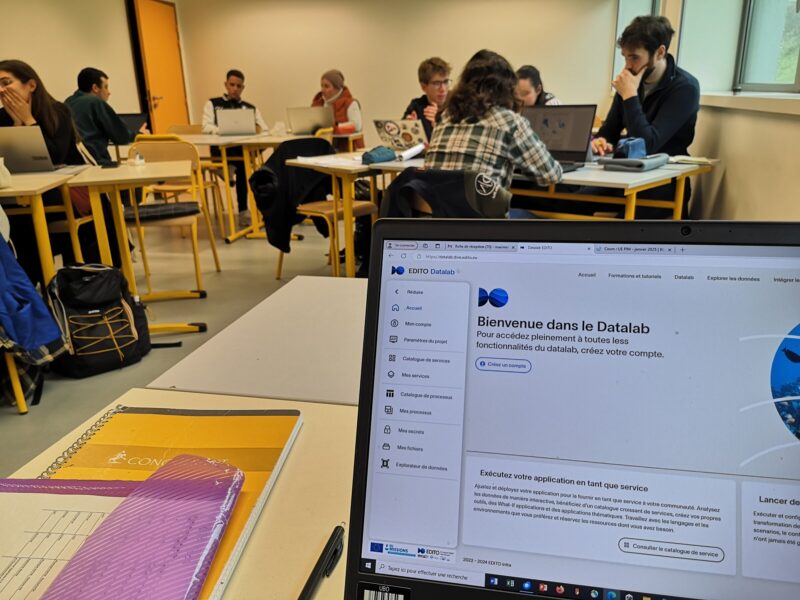OCEAN TWIN PIM: Critically Exploring the Concept of a Digital Twin of the Ocean for Marine Science and Governance

From 6 to 10 January 2025, twelve students took part in the OCEAN TWIN PIM, led by Maxime Kernec (ISblue/UBO) and Justine Castrec (ISblue/UBO). The week was enriched by contributions from organisations such as Ifremer, Mercator Ocean, and the SIMI of IUEM, offering an in-depth exploration of the concept of the ocean digital twin while raising crucial questions about its scientific, political, and ethical implications.
Inspired by the commitment made at the One Ocean Summit 2022 in Brest, the ocean digital twin represents a major innovation for international ocean governance. This tool aims to model the ocean in all its dimensions — physical, chemical, biological, and human — in order to test different sustainable management scenarios. Yet, behind this ambition lie several pressing questions:
- What data should be integrated to ensure the model’s reliability?
- Who are the actors shaping this technology?
- What legal, geopolitical, and ecological challenges does it raise?
Throughout the workshop, students alternated between theory and practice to grasp both the foundations and the implications of the ocean digital twin:
- Meetings with researchers and professionals: insightful exchanges on the technical, scientific, and strategic challenges of this emerging technology
- Testing applications: hands-on exploration of existing tools to understand the potential and limitations of digital twins
- Independent work: critical analysis of data, cross-disciplinary discussions, and collaborative synthesis of findings
Guest speakers included:
- Nathalie Julien, UBS
- Jerome Gasperi, Mercator Ocean
- Adeline Souf, SHOM
- Mathias Kurchan, SHOM
- Michelle Barbier, INRIA
- Anne-Marie Tréguier, CNRS
- Pauline Chauvet, SIMI de l’IUEM
- Ronan Fablet, IMT Atlantique
By combining the knowledge acquired, participants identified the benefits, limitations, and ethical dimensions of this technology.
The PIM concluded with a presentation of the students’ findings, offering a comprehensive and nuanced analysis. Their critical perspective shed light on the multidimensional challenges of developing an ocean digital twin, while also highlighting its potential opportunities.
Through this workshop, participants developed a wide range of skills:
- Methodological skills: data analysis and synthesis of complex information
- Critical thinking: assessing ethical, scientific, and political issues
- Interdisciplinary approach: integrating perspectives from multiple fields to understand a technology positioned at the crossroads of science and policy
Supervisors:
- Maxime Kernec (ISblue/UBO)
- Justine Castrec (ISblue/UBO)
 Attention, vous utilisez un navigateur peu sûr !
Attention, vous utilisez un navigateur peu sûr !